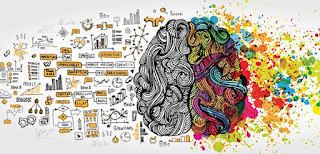The Psychology of Creativity
Creativity is the ability to generate new and innovative ideas, concepts, or solutions to problems. It is a complex phenomenon that involves various cognitive, social, and emotional processes. In this article, we will explore the psychology of creativity.
- The creative process: Creativity involves a complex process of generating and evaluating new ideas. This process can be influenced by various factors such as motivation, cognitive flexibility, and expertise.
- The role of motivation: Motivation is an important factor in the creative process. Research has shown that intrinsic motivation, or the desire to engage in an activity for its own sake, is more conducive to creativity than extrinsic motivation, which involves external rewards or pressures.
- The importance of cognitive flexibility: Cognitive flexibility is the ability to switch between different modes of thinking and adapt to new situations. It is an important factor in creativity, as it allows individuals to approach problems from different angles and generate new solutions.
- The role of expertise: Expertise is another important factor in creativity. Research has shown that individuals who have a high level of expertise in a particular domain are more likely to generate creative ideas within that domain.
- The social and emotional aspects of creativity: Creativity is not just an individual process, but also involves social and emotional factors. Collaboration and feedback from others can help to stimulate creativity, while emotions such as mood and arousal can also influence the creative process.
- Creative personality traits: Some personality traits have been linked to creativity, such as openness to experience, divergent thinking, and persistence. However, it is important to note that creativity is not solely determined by personality traits, and can also be influenced by environmental and situational factors.
In conclusion, creativity is a complex and multifaceted phenomenon that involves various cognitive, social, and emotional processes. Understanding the psychology of creativity can help individuals and organizations to foster and enhance their creative abilities.

.png)

.png)
Post a Comment for "The Psychology of Creativity"